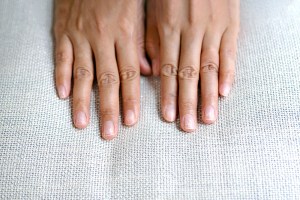We independently evaluate all recommended products and services. If you click on links we provide, we may receive compensation.
Steaming hot showers are one of life’s little luxuries during the winter season, but it’s a good idea to start being mindful of how often you take them. According to board-certified dermatologist Noah Gratch, M.D., FAAD, piping hot water isn’t always the best thing for you. He explains that it can strip away natural oils in the skin, leading to dryness and a weakened skin barrier.
“[The skin barrier is] the top layer of your skin [that] contains ceramides, cholesterol, and fatty acids, which help keep skin hydrated and protected,” he says. If you’re already struggling with some damage in this department, it’s definitely something to think about — hot water could be hindering your skin’s healing process. Studies also show that hot water results in an increase of water loss in the skin. That and a weakened barrier might cause your skin to be more susceptible to acne, dehydration, and environmental damage.
Additionally, hot water can cause irritation and therefore itching — especially if you have a skin condition, according to Teresa Song, M.D., board-certified dermatologist at Marmur Medical. “[It dilates] the blood vessels near the skin’s surface, releasing histamine, a chemical involved in itching and swelling,” she says. “It can also activate sensitive nerve endings, worsening conditions like eczema or rosacea, where the skin is more reactive to temperature changes.”
Both Gratch and Song say to opt instead for warm or cool water when showering. Although this might not be an easy adjustment, your skin will definitely thank you. If you absolutely can’t let go of hot showers, they recommend limiting your time under water to avoid damage to your skin and hair.
Unfortunately, hot showers aren’t the only thing that can cause wear and tear on the skin. There are a few other things to consider if you’re dealing with skin barrier damage and can’t seem to heal it. Gratch and Song say skin care products that contain ingredients including alcohol, fragrance, harsh soaps, and parabens can dehydrate the skin, causing further damage. Song adds that you also want to be careful with exfoliants and retinoids (on both the face and body), as overusing them can cause irritation. Shower scrubs that use abrasive physical exfoliants are among the main culprits to look out for — especially if they contain sharp or large particles in them. Opt for gentler body scrub options, such as Nécessaire’s Body Exfoliator, instead.
To keep your skin barrier strong, healthy, and itch-free, both Gratch and Song recommend focusing on hydration, as well. This goes for all skin types. If your barrier is damaged and your skin is dehydrated (lacking water), yet still oily or acne-prone, try a moisturizer that’s high in water-based hydration as opposed to oil. If you have dry skin, you can try a moisturizer with a few more plant-based oils in it to help provide healing and relief to the skin. For all skin types, both dermatologists love hyaluronic acid, ceramides, and glycerin — the three universal master hydrators — to keep skin looking and feeling its healthiest.
This article is for general informational purposes only.
Affiliate Disclaimer Medical Disclaimer
















 Unique Beauty is free for all users.
Unique Beauty is free for all users.